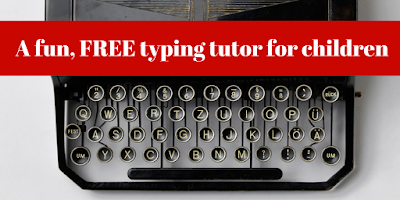If you've been following along with Mom2MomEd for any length of time, you'll surely be aware that we love reading. We also love reading aloud with our children--my son is 18 and I still enjoy reading aloud with him!
After I began homeschooling my son, halfway through his fourth grade year, we took our reading aloud to a new level and started a loose tradition of reading poetry and classic novels together during and after dinner. We didn't necessarily do this every night, but it did happen at least two or three times per week for a few years.
Reading aloud was special in our home for many reasons, but I especially cherish our loose tradition because it allowed my son and my mom to form a bond they might not have had otherwise. You see, I was a single mother and, for a time, we couldn't afford to live in our own place. As such, we moved in with my mom--my son's grandmother. My mom is pretty old school (no pun intended) when it comes to certain things related to children. This includes the idea that children should be seen and not heard. It also involves children always following directions from adults. My mom was a kindergarten teacher, and although she was beloved by her students and their families, my son and my mom had a rocky relationship.
Since we lived with my mom, my son and I often ate dinner with her, and thus we included her in many of our evening read aloud sessions. The three of us especially enjoyed reading poetry together. A couple of times per month, my son and I would go to the library, and among all of the books in our library haul, we'd each have a few books of poetry to share at the dinner table.
Since my son and my mom often had difficulty getting along--my mom wanting my son to be quieter and more compliant and my son wanting to ask questions and to explore and discuss the world around him--reading aloud together helped to bridge the gap.
We especially loved to take turns as we read. Often we would each read a poem aloud, passing the book at hand around the table several times so that we'd each read several pieces. Some nights we'd only spend 10 or 15 minutes reading to one another. On other nights, nights when we were all in particularly good moods or just really enjoying the material before us, we might sit at the table reading aloud for more than an hour.
There are many ways that you can encourage your kids to read more, but reading aloud with them is a surefire way to lead by example and spark a passion for books.
Over time, my son and I (and my mom) found that we drifted back to a few poets and collections of poetry over and over, eventually adding them to our own home libraries. We would love for you to visit your town or city's library and check out books and explore the world of literature, but we've also provided links below to several of our favorite poetry collections:
First we have two collections of classics:
And, then there are those classics that many parents of my generation grew up with--the mostly silly but sometimes serious works of Shel Silverstein:
But then there are a huge number of terrific poetry collections and books that my son and I discovered through our evening read alouds and the local library. I encourage you to look for and enjoy these as well:
- Collected Poems for Children by Ted Hughes--Hughes is best known as the ex-husband of poet Sylvia Plath and most of his work is most appropriate for adults. This collection, however, is terrific for kids.
One of our favorite poetry books turned out to be a double duty find. We were able to combine punctuation practice with reading and poetry in Punctuation Celebration by Elsa Knight Bruno. I was expecting this cute little collection to be dry and boring, but we loved it!
And, finally, we loved all of these fun little books--even though my son is 18 now, we still have a few of these in our home library, and every now and then, I catch my son still pulling them out! How's that for an endorsement?
While my little family of myself, my son, and my mom enjoyed reading aloud to one another at the dinner table, there are many ways you can encourage your kids to read more--we hope a read aloud session is just one of many methods you will use to increase the reading that happens in your home.
No one--child or adult alike--is ever too old to read aloud or to be read to. Grab your family and a giant stack of pillows and make yourselves cozy on the living room floor if reading over dinner isn't your style.
Pitch a tent in the backyard, fill it with sleeping bags, stuffed animals, and a lantern and add several stacks of books for a Friday night read along.
Snuggle up with the family pets and take turns reading to Fido and Fluffy.
However you do it, keep reading to each other and simply enjoy the process of bonding over books.
What's your favorite book to read aloud? Tell us about it in a comment!
Did you enjoy this post? Be sure to check out these additional articles:
Please note, this post does contain affiliate links. If you purchase through these links, we may receive a small commission at no extra cost to you. Thank you for your support.















